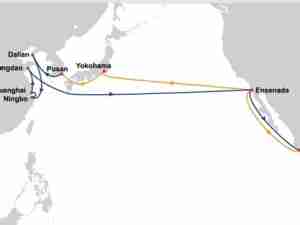BHP Billiton says next word on dividend in February
By: Reuters | Nov 19 2015 at 02:43 AM | Maritime
By James Regan
PERTH - Mining giant BHP Billiton will update the market on its future dividend policy in February, chairman Jac Nasser said on Thursday, at it battles falling prices for everything from iron ore to copper.
BHP’s progressive dividend policy, under which the company promises never to cut dividends, is under pressure, with investors fearing it will have to borrow heavily to fund the payout as the commodity downturn slashes earnings.
Speaking at the company’s annual shareholder meeting, Nasser and Chief Executive Andrew Mackenzie said maintaining a strong balance sheet would be BHP’s first priority, but pointed to the savings it had made from improved productivity.
“We don’t have to make any decisions on what the dividend is until next February,” when fiscal first half results are released, Nasser told reporters.
“The balance sheet has to be strong ‘A’ through the cycle,” he added. “Obviously debt is part of that equation.”
Mackenzie said BHP’s efforts to improve productivity meant it could reduce capital spending and invest less to generate future growth, “perhaps 50 percent less”.
“That of course provides us with a bit more cash which then goes into the dividend discussion,” he said.
UBS is forecasting a near 50 percent fall in BHP’s net earnings to $3.3 billion in 2015/16, about half the $6.49 billion the company paid out last year on dividends, while Goldman Sachs has said BHP needs to cut its dividend in half.
Facing a potential multi-billion dollar bill to help clean up a mud slide disaster that killed at least 11 people on Nov. 5 at the company’s Samarco joint venture in Brazil, Mackenzie said he was determined to see the operation resume some day and had no plans to exit the venture.
“There should be no doubt that our desire is to get it back to being a good business again and we are committed very much to the long term,” he said.
In 1996, BHP agreed to a $400-million out-of-court settlement for land holders near its Ok Tedi mine in Papua New Guinea after a tailings dam disaster and five years later divested its majority interest.
Earlier at the meeting, Nasser agreed to a request by Greenpeace for a moment’s silence in respect for those affected by the tragedy.
BHP shares closed up 3 percent on Thursday at A$20.42, after hitting a seven-year low in the previous session.
Iron ore, BHP’s main source of income, was sitting at $46.35 a tonne <.IO62-CNI=SI>, down from highs above $180 in 2011, while copper was veering towards a six-year low. Oil and coal are also weaker.
